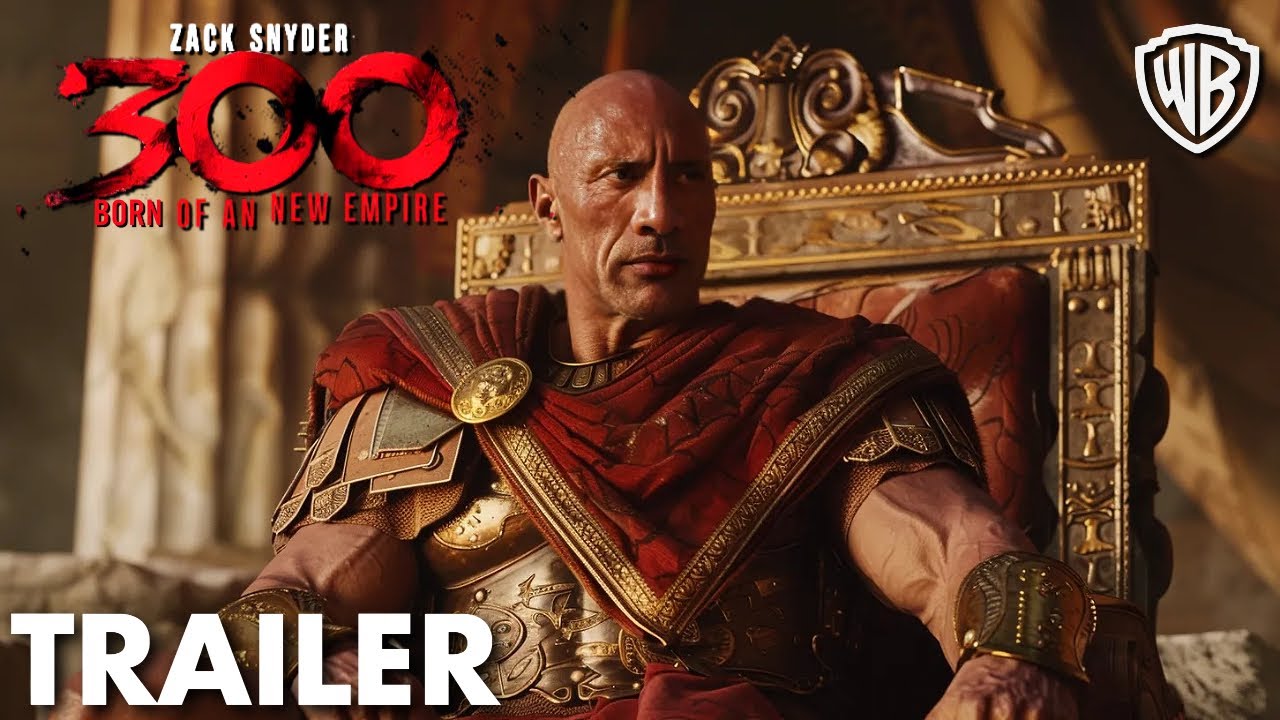Zack Snyder’s 300: Born of an Empire (2025)

As the film begins, Athens thrives under the guidance of Themistokles, who strives to forge a federation of city-states based on reason, debate, and the maritime strength of the Athenian fleet. Sparta remains steadfastly austere and militant, led now by Queen Gorgo, who carries the weight of Leonidas’ legacy. However, prosperity has lulled many Greeks into complacency. Rumors spread of a mysterious Persian prince Aristes, a brilliant strategist and charismatic orator who is rallying the empire’s satraps and mercenaries with a bold plan: not simply to invade Greece again, but to reshape it as a Persian-led cultural powerhouse. Rather than raw conquest, Aristes promises a “new empire” forged on trade, knowledge, and subtle manipulation. But beneath this veneer of enlightened ambition lies a ruthless agenda to break Greek unity from within.

When an Athenian merchant vessel disappears in the Aegean, and Spartan envoys are found murdered on the outskirts of Thebes, suspicion runs rampant. Athens and Sparta blame each other, their old tensions surging to the surface. Themistokles, older and more cautious, seeks diplomacy, while younger Athenians call for immediate military reprisals. Gorgo, hardened by grief and political isolation, demands swift Spartan justice. It is in this swirling cauldron of mistrust and pride that Aristes’ agents sow discord.
In the midst of chaos, an unlikely hero emerges in the form of Eudoros, a young Spartan warrior and the son of one of Leonidas’ 300, who dreams of living up to the legendary sacrifice of his father’s comrades. Eudoros finds himself on a secret mission to locate allies who understand the gravity of the new Persian threat. Alongside him is Lysandra, an Athenian navigator and scholar who has witnessed the strange movements of Persian ships off Ionia’s coast. Their journey takes them through rugged mountain passes, hidden temples, and smoldering border towns to uncover the truth of Persia’s resurgence.

As the Greeks stumble ever closer to civil strife, Aristes deploys a cunning mix of diplomacy and subversion. He dispatches Persian envoys laden with gifts and honeyed words to Corinth, Argos, and other city-states disgruntled by Athenian arrogance or Spartan severity. Just as Greek unity seems about to fracture entirely, Lysandra and Eudoros deliver damning evidence of Persian complicity in the murders and disappearances. Themistokles recognizes the threat: a more sophisticated Persian strategy, one seeking to turn Greek strength—its diversity and independence—into its downfall.
A riveting council in the Corinthian Isthmus sees old rivalries flaring. Queen Gorgo accuses Themistokles of being too trusting; Themistokles counters that Sparta’s rigidity invites tyranny. Yet in the heat of debate, the memory of Leonidas and the fallen heroes of Thermopylae reignites their sense of purpose. Moved by the ghosts of their shared past and the stirring appeals of Eudoros, both sides unite if only for survival.

The climax unfolds on the eastern coast near the ruins of an old Greek colony where Persian forces, led by Aristes, prepare to land an army unlike any previously fielded—one that employs Greek hoplites who have been bribed or coerced into service, plus Eastern war beasts and advanced siege equipment. Under a stormy sky reminiscent of the cinematic stylings of the first 300, the Greeks converge. Spartans, Athenians, Thebans, and others stand side by side, forming a massive phalanx. The ensuing battle is a tapestry of blood, bronze, and blackened skies, punctuated by lightning flashes and Snyder’s signature slow-motion sequences capturing every clash of sword and spear.

Eudoros leads a daring infiltration to confront Aristes himself. Lysandra’s knowledge of hidden coastal currents turns the tide at sea, allowing Athenian triremes to ambush Persian supply ships. Meanwhile, Gorgo’s personal guard and Themistokles’ tacticians coordinate a pincer movement that fractures the Persian lines. The battle crescendos in a duel between Eudoros and Aristes, blending the intimate brutality of hand-to-hand combat with the epic scale of armies struggling in the background.











